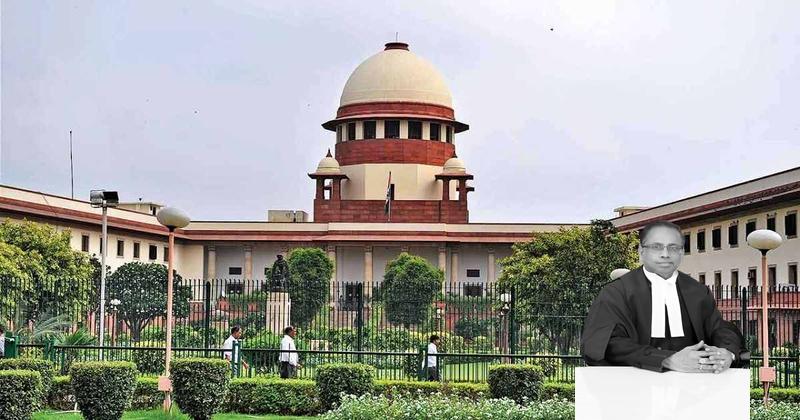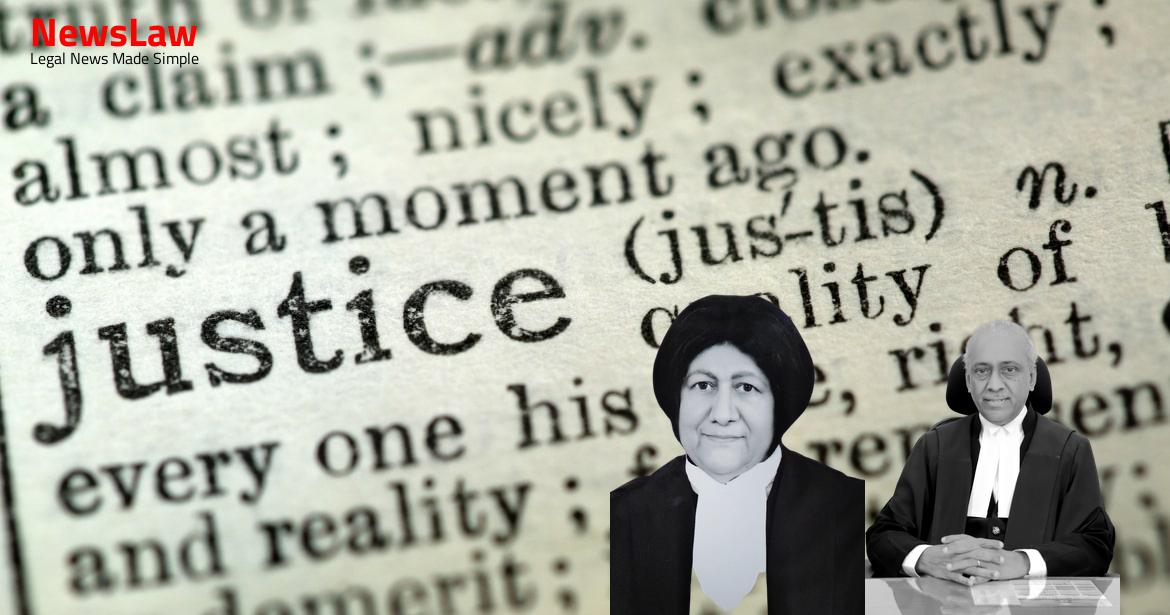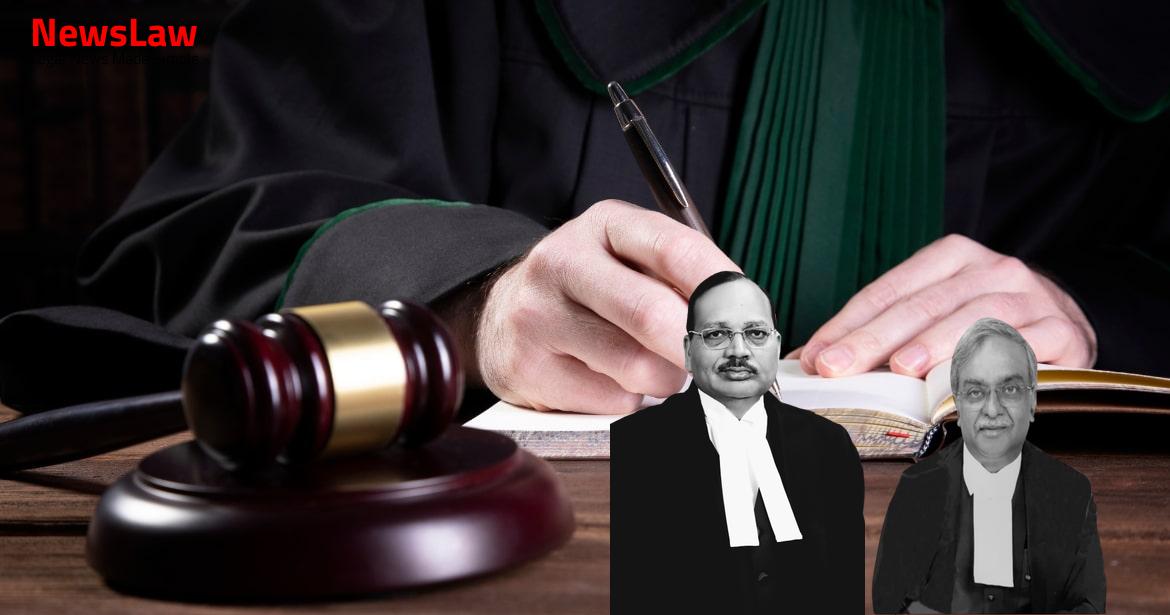This appeal is directed against the judgment and order dated 13 October, 2008, passed by the Gwalior Bench of the Madhya Pradesh High Court dismissing Miscellaneous Appeal No.478 of 2007 filed by the appellant herein. When, after the death of Bapu Saheb Kante a son by his second wife, Jai Singh Rao, came to claim a share in his estate, a family settlement was arrived at by which the properties of Bapu Saheb Kante were divided amongst the heirs by a Family Arrangement dated 8 February, 1967, by metes and 3 bounds. First Appeal No.76 of 1993 was filed by the legal heirs of Jai Singh Rao, wherein it was sought to be asserted that no partition had at all been effected in respect of the properties of late Bapu Saheb Kante and that the alleged document of partition could not be acted upon since the same had not been registered and was not, therefore, admissible in evidence.
A Letters Patent Appeal was filed by Jai Singh Rao questioning the judgment and decree passed by the Trial Court, which was also dismissed by the Division Bench of the High Court upon holding that the partition deed dated 8 February, 1967, is a Memorandum of Partition pertaining to a previous oral partition. In the present suit filed by the appellant herein an attempt has been made to make out a case that the alleged partition deed of 8th February, 1967, was executed only with the intention of giving a separate share to Jai Singh Rao and the rest of the properties remained joint as there was no partition by metes and bounds. Before the High Court proof of partition and the Family Settlement, which was also accepted by the appellant herein without any objection, were produced, as was the decision of the High Court in 7 First Appeal No.9 of 1994 in which the learned Single Judge had held that the documents of 8 February, 1967, had been held to be a Family Settlement for which no registration was required under Section 17 of the Registration Act, 1908.
The Trial Court was, however, directed to decide the suit expeditiously and to dispose of the same within six months from the date of appearance of the parties before the Trial Court.
Tankha urged that a partition of joint family property could be effected only by metes and bounds and by delivery of actual possession.
Also Read: https://newslaw.in/case-type/civil/contrary-directions-in-issuance-of-letter-of-intent/
Tankha urged that the learned Courts below had erred in acting upon the Deed of Family Settlement executed on 8 February, 1967, which, in fact, was a Deed of Partition and could not have been acted upon without being executed by all the co-sharers and without being registered as provided for under Section 17 of the Registration Act, 1908.
Tankha urged that there could be little doubt that in the facts of this case, the balance of convenience and inconvenience lay in favour of grant of temporary injunction during the pendency of the suit, as prayed for by the appellant herein as otherwise the appellants would suffer irreparable loss and injury. Ranjit Kumar, learned Senior Advocate, appearing for the Respondent Nos.1, 2, 8, 9 and 10, reiterated that the family settlement of 8 February, 1967, had been duly acted upon, as would be evident from the sale deeds executed by Narendra Kante, which have been exhibited by Narendra Kante in the suit pertaining to the suit property. Ranjit Kumar submitted that as far as the second question raised on behalf of the appellant 14 was concerned, it was well-settled that a Deed of Family Settlement which was reduced into writing was not required to be registered under Section 17 of the Registration Act, 1908.
15 Registration would be necessary only if the terms of the family arrangement are reduced into writing but there also a distinction should be made between a document containing the terms and recitals of a family arrangement made under the document and a mere Memorandum prepared after the family arrangement had already been made, either for the purpose of recording or for information of the Court for making necessary mutation. While holding as above, Their Lordships also indicated that even if a Family Arrangement, which required registration was not registered, it would operate as a complete estoppel against the parties, which had taken advantage thereof.
Though the Deed of Family Settlement has been heavily relied upon by the Courts below and the Respondents herein, it will have to be considered whether reliance could have been placed on the same since the same was not registered, though it sought to apportion the shares of the respective co-sharers. As far as the second question is concerned, a Deed of Family Settlement seeking to partition joint family properties cannot be relied upon unless signed by all the co-sharers. Now, coming to the question of balance of convenience and inconvenience and irreparable loss and injury, it has to be kept in mind that the Respondent No.10 has already acquired rights in 20 respect of the share of the Respondent Nos.8 and 9 to the suit property and in the event an interim order is passed preventing development of the portion of the property acquired by it, it would suffer irreparable loss and injury since it would not be able to utilize the property till the suit is disposed of, which could take several years at the original stage, and, thereafter, several more years at the appellate stages.
In such circumstances, we are not inclined to interfere with the order passed by the High Court, but we are also concerned that the suit should not be delayed on one pretext or the other, once such interim order is granted.
In the meantime, the co-sharers to the suit property shall not create any third party rights or encumber or transfer their respective shares in the suit property in any 22 manner whatsoever and all transactions undertaken in respect thereof shall be subject to the final decision in the suit.
Case Title: NARENDRA KANTE Vs. ANURADHA KANTE .
Case Number: C.A. No.-008290-008290 / 2009



